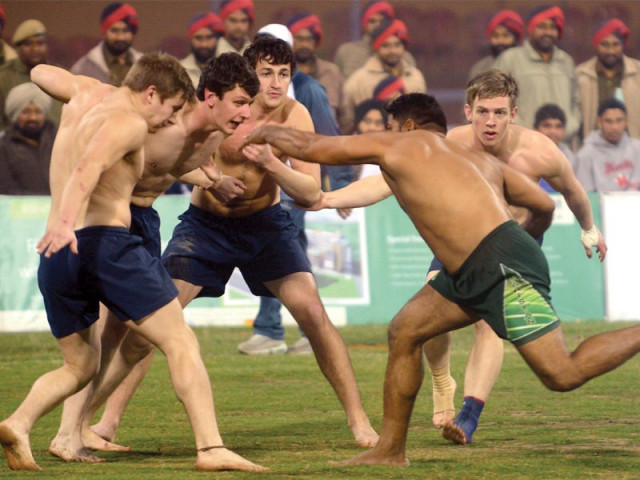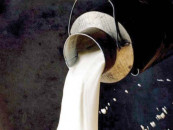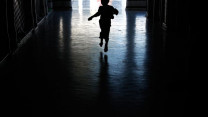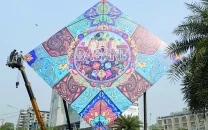Kabaddi struggles for greater recognition
With SAF games next year, players believe game has received little attention from govt

Indigenous to South Asia, Kabaddi is an ancient sport which manages to garner a stupendous regional audience in India and Pakistan, despite little support offered by the two governments. Once a popular pastime on the street corners of the subcontinent, contemporaneity has since pushed the game to the shadows of rural Punjab— a place where it still finds home.
A contact team sport, played between two teams and several players, Kabaddi can be thought of as a unique amalgamation of many modern games like grappling, running, karate and athletics.
“Though no one knows when exactly the game became part and parcel of our land’s culture, but people say it dates back to the Mahabharata,” says Lala Obaidullah, who finds great acclaim in his hometown of Faisalabadi Samundari, as the title holder of Sher Punjab in Indigenous Kabaddi.
Although the epic Indian poem does make certain references to the ancient sport, it’s earliest known records trace back to pre-historic times, when the honing of human reflexes was paramount to survival. The Vedic schools of the Indian subcontinent however, have for centuries, invested in the development of Kabaddi as a physical exercise and an age-old practice of reading enemy territory, which has allowed the country a certain edge in the sport.
That being said, Kabaddi’s international recognition is a more recent affair, dating no farther than the latter half of the 20th century, when it was demonstrated at the 1936 Berlin Olympics. Since then, the game has been a regular part of events like Asian Games, Kabaddi World Cup and other international sporting platforms.
Despite its recent growth, Obaidullah believes the game has received little to no sponsorship from the government for its development, and much of its presence today is owed to the blood and sweat of the game’s regional patrons.
Read No cricket, but Pakistan, India ready to face off in Kabaddi
“All of government’s support so far has been limited to players being eligible for government jobs on sports quotas. But it is our love and affection for the land, that we still endeavor to keep this traditional game alive,” he told.
Owing to better funding and other factors, India held monopoly on the sport’s global event for almost a decade. But in the year 2020, the Pakistan Kabaddi Federation took a special interest in hosting the Kabaddi World Cup in Pakistan, in which the Islamic Republic got its taste of world championship.
According to Pakistan Kabaddi team captain Irfan Mana Jutt, who is also an air force veteran, the country is ripe with talent, which is going to waste owing to the government’s lack of attention towards the sport. “Slap Kabaddi for instance, which is very different from regular circle kabaddi, has been left out of national and international platforms. This form of the game, which has been played on these lands for centuries, has now been pushed to the shadows of rural outskirts,” he claimed.
The captain, who chooses to disassociate himself and his team from the politics said to be plaguing the kabaddi federation, says his men are looking forward to the national kabaddi competition in November, and then the South Asian Games next year.
“It would be for the first time that we’ll be made part of the SAF games as Kabaddi players, and we are focusing on that instead of whatever controversy that is brewing in the federation,” told Jutt.
Speaking in the regard, Pakistan Kabaddi Federation Rana Sarwar, who also rubbished any claims of controversies within the association, said that his department is working on establishing more district level development programmes for the ancient sport.
“Kabaddi has come a long way since its earliest forms, and is now played across Pakistan, including Sindh and Khyber Pakhtunkhawa, albeit with varied tactics. So we are now trying to inaugurate district level academies where players of kabaddi and wrestling can be trained to hone their talents,” he told The Express Tribune.
Published in The Express Tribune, August 22nd, 2021.
























COMMENTS
Comments are moderated and generally will be posted if they are on-topic and not abusive.
For more information, please see our Comments FAQ